
Who was the real J. Robert Oppenheimer?
The highly anticipated movie "Oppenheimer" finally lands in theaters Friday. But who was J. Robert Oppenheimer, the American physicist widely considered the father of the atomic bomb?
2023-07-20 19:17
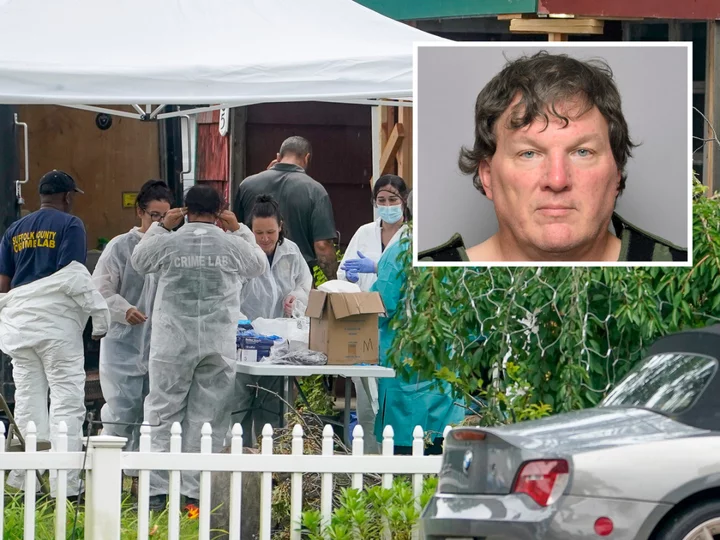
Rex Heuermann’s wife files for divorce six days after he’s arrested for Gilgo Beach serial killings
The wife of accused Gilgo Beach serial killerRex Heuermann has filed for divorce just six days after New York police arrested him on suspicion of murdering at least three women and dumping their bodies along Long Island. Online court records show that Asa Ellerup – the accused serial killer’s wife of two decades and mother of his children – filed a matrimonial complaint in Suffolk County Supreme Court on Wednesday. The filing – titled Asa Ellerup v Rex Heuermann – states that the divorce is “uncontested”. The case records include a complaint, summons and a “notice concerning continuation of health care coverage” all filed on Wednesday, though the contents have not been made public. Ms Ellerup is said to have been “shocked” and “disgusted” when she learned that her husband had been arrested and charged with three of the string of unsolved killings that have haunted Long Island for more than a decade. He is also the prime suspect in a fourth murder. Shocking court documents, released by Suffolk County District Attorney’s Office last week, revealed that her hair had been found on the bodies of three of the four victims – but that she was out of town on each of the occasions that her husband allegedly struck. Ms Ellerup’s attorney Bob Macedonio told Fox News Digital outside Suffolk County Jail that she had filed for divorce after her life was “turned upside-down” by her husband’s alleged actions. “This is all still a whirlwind,” he said. “Her and her children’s lives have been completely turned upside-down.” Mr Heuermann has an adult daughter and stepson with Ms Ellerup. Their daughter worked at her father’s architecture business with him in Manhattan. Mr Macedonio said that police carried out a coordinated raid on the family home in Massapeua Park on Thursday night at the same time that they arrested Mr Heuermann as he left his office in Midtown Manhattan. He was charged with three counts of murder in the first degree and three in the second degree over the deaths of Megan Waterman, Melissa Barthelemy and Amber Costello. He is also the prime suspect in the murder of Maureen Brainard-Barnes – who together with the three is known as the “Gilgo Beach Four” and was last seen alive in early June 2007 in New York City. The four women were found within one-quarter mile of each other, bound by belts or tape and some wrapped in burlap. He pleaded not guilty to the charges as he appeared in court on 14 July and was ordered to be held without bond. Ms Ellerup and her two adult children were informed about the accusations against him and had their passports, computers, phones and iPads seized as police swooped on their home, her attorney said. “They were home and the cops came in, and they were completely blindsided, and they told them what was going on,” he said. Court documents, filed as part of prosecutor’s request that bail be denied, revealed that hair belonging to Mr Heuermann’s wife was allegedly found on the bodies of three of the four victims. Prosecutors say that two female hairs had been found on Waterman, one of them on the tape which the killer wrapped around her head. One female hair was found on tape used to wrap burlap around Costello and one hair was found in a belt buckle used to bind Brainard-Barnes – who Mr Heuermann is yet to be charged over. To identify the female who the belonged to, investigators trawled through the trash at the Heuermann home in Long Island. In July 2022, they recovered 11 bottles from the trash and they were swabbed for DNA. Forensic testing found that the DNA on the bottles matched the female hair found at the crime scene, concluding that the hair belonged to Mr Heuermann’s wife. The accuracy is such that more than 99 percent of the North American female population can be ruled out, according to the court documents. Prosecutors found that the suspect’s wife was out of town at the time of the three murders for which he has been charged but that her hair could have transferred to the crime scene through her husband’s clothing or through him using items such as tape taken from the family home. She has not been named as a suspect and there is no suggestion that she was involved – or knew about – the murders. As well as his wife’s DNA, Mr Heuermann’s DNA was also found on one of the victims – tied to him through a discarded pizza crust. Mr Heuermann was also linked to the killings through a pimp’s tip about his pickup truck, a stash of burner phones, “sadistic” online searches and phone calls taunting victims’ families. Investigators continue to comb through the family home for evidence – including body parts and trophies taken from the victims – as well as storage units connected to him two miles away in Amityville. So far, a trove of around 200 guns have been seized as well as his pickup truck. Over in South Carolina, police seized the pickup truck at the centre of the murder investigation from his brother’s home this week. Mr Heuermann owns a property in Chester next to his brother Craig. The Chester County Sheriff’s Office confirmed that it “was requested by the Gilgo Beach Task Force to assist in gathering evidence in Chester County relevant to their investigation” – as law enforcement agencies are now also looking into unsolved murders and missing persons cases all across America. A Las Vegas Metropolitan Police Department spokesperson told The Independent on Tuesday that they are reviewing unsolved murders and missing persons cases around Sin City after becoming aware that the suspect owns a time share property in the area. “We are aware of Rex Heuermann’s connection to Las Vegas. We are currently reviewing our unsolved cases to see if he has any involvement,” the department said. The horrific serial killer case has captured the nation’s attention for more than a decade. The Gilgo Beach murders had long stumped law enforcement officials in Suffolk County who believed it could be the work of one or more serial killers who targeted sex workers and dumped their bodies along the remote beaches on Ocean Parkway. The case began in May 2010 when Shannan Gilbert vanished after leaving a client’s house on foot near Gilgo Beach. She called 911 for help saying she feared for her life and was never seen alive again. During a search for Gilbert in dense thicket close to the beach, police discovered the remains of another woman. Within a matter of days, the remains of three more victims were found close by. By spring 2011, the remains of a total of 10 victims had been found including eight women, a man, and a toddler. Police have long thought that it could be the work of one or more serial killers. Gilbert’s body was then found in December 2011. Her cause of death is widely contested with authorities long claiming that it is not connected to the serial killer or killers but that she died from accidental drowning as she fled from the client’s home. However, an independent autopsy commissioned by her family ruled that she died by strangulation and her mother believes she was murdered. Like Gilbert, most of the victims targeted were sex workers while some are yet to be identified. Read More Gilgo Beach murders – live: Rex Heuermann’s wife files for divorce as work at NYC Trump building emerges Pizza crust, burner phones and his wife’s hair: How Long Island police tied Rex Heuermann to the Gilgo Beach murders Rex Heuermann’s wife ‘didn’t talk to anyone’ in Long Island community, neighbour says
2023-07-20 18:47

As cell-cultivated meat hits menus, investors see scaling as next hurdle
By Leah Douglas WASHINGTON Cell-cultivated meat companies could receive new investment since U.S. regulators cleared the product's sale
2023-07-20 18:30
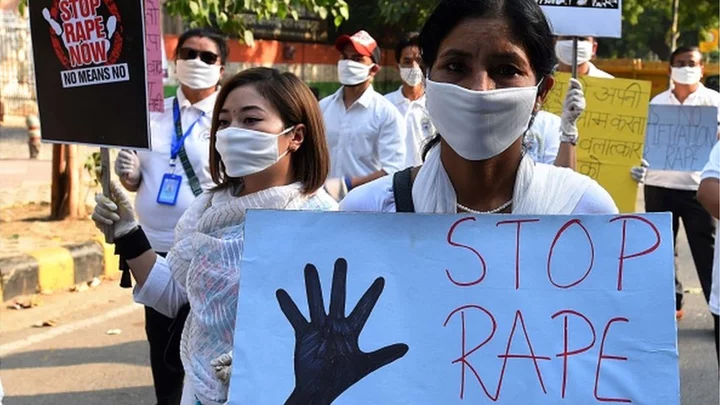
Manipur: India video shows how rape is weaponised in conflict
A video that shows two naked women being paraded by a mob in Manipur state has sparked outrage.
2023-07-20 18:22

BYD, Li Auto Smash Foreign Rivals During Price War
China’s electric-vehicle makers are defying an unprecedented price war with their share gains trouncing foreign rivals, and analysts
2023-07-20 17:55
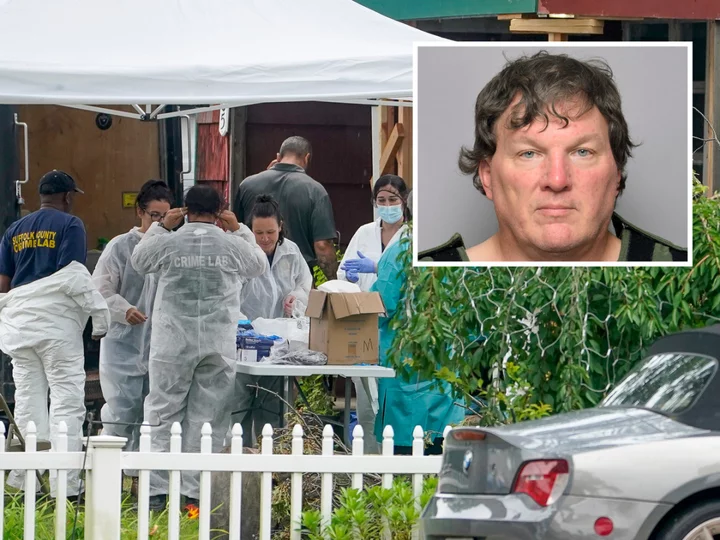
Gilgo Beach murders – live: Rex Heuermann’s wife files for divorce as work at NYC Trump building emerges
Rex Heuermann’s wife has filed for divorce just six days after New York police arrested her husband over the notorious Gilgo Beach murders. Court records show that Asa Ellerup – the accused serial killer’s wife of two decades and mother of his children – filed a matrimonial complaint in Suffolk County Supreme Court on Wednesday. His family are said to have been left “shocked” and “disgusted” after the Long Island native, 59, was arrested on Thursday and charged with the murders of three women. It has now also emerged that his Manhattan-based architecture company was once hired for a project at the Trump Building in New York City. New York City Department of Buildings records obtained by real state publication The Real Deal show Mr Heuermann’s firm was hired by a third party for a $200,000 plumbing job on 40 Wall Street in 2018. “Mr Heuermann has never worked for the Trump Organization in any capacity,” a spokesperson for the Trump Organization told the outlet. “He was hired by a third-party tenant, who vacated years ago, to perform minor architectural work in their individual space.” It’s unclear whether Mr Heuermann ever visited the building. Read More Pizza crust, burner phones and his wife’s hair: How Long Island police tied Rex Heuermann to the Gilgo Beach murders Rex Heuermann’s wife ‘didn’t talk to anyone’ in Long Island community, neighbour says How the Gilgo Beach serial killer turned the Long Island shore into a graveyard Las Vegas police reviewing unsolved cold cases for links to Gilgo Beach murder suspect Rex Heuermann
2023-07-20 16:55
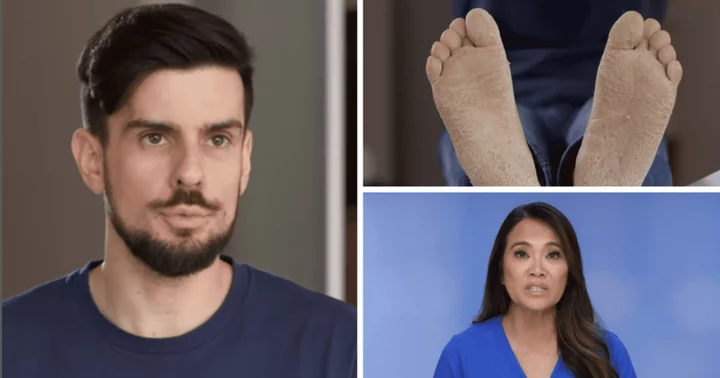
'Dr Pimple Popper' Season 9: Where is Felipe now? Dr Sandra Lee treats patient's painful genetic skin condition to save him from losing his job
Felipe, a photographer with very dry skin, seeks treatment from Dr Sandra Lee to avoid losing his job
2023-07-20 14:46

Manipur: India outrage after two women paraded naked in violence-hit state
The police in Manipur state say the women were also gang raped and beaten up.
2023-07-20 12:45

The winning numbers for the $1 billion Powerball jackpot have been drawn
The winning numbers for Wednesday's colossal $1 billion Powerball jackpot -- the third largest jackpot prize in the game's history -- have been drawn.
2023-07-20 11:27

Ukraine war: Wheat prices soar after Russia warns shipping
Russia announces it will treat ships heading for Ukrainian ports as potential military targets.
2023-07-20 11:22

Tobias Ellwood: I got it wrong on Afghanistan clip, says Conservative MP
Tobias Ellwood deletes a video where he said Afghanistan had been transformed under the Taliban.
2023-07-20 10:47
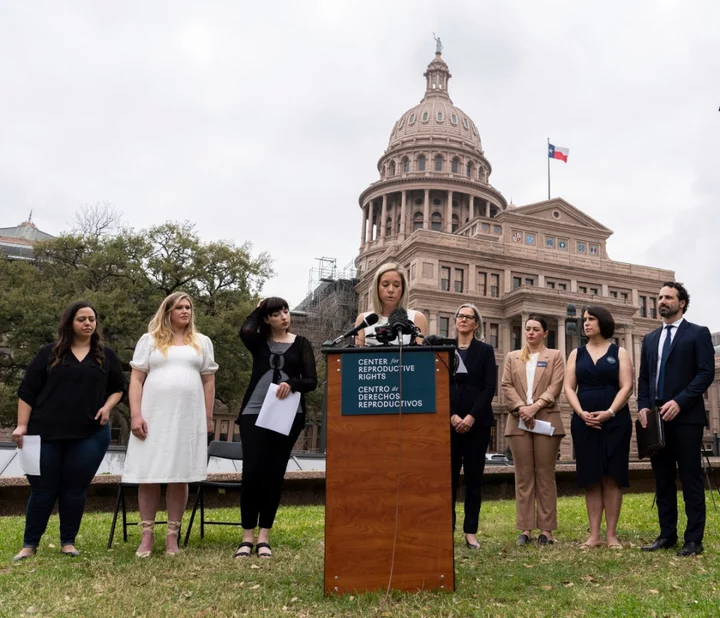
Texas women suing over anti-abortion law give historic and heartbreaking testimony in a landmark court case
In March, unable to legally obtain abortion care in Texas, Samantha Casiano was forced to carry a nonviable pregnancy to term, and gave birth to a three-pound baby who died hours later. Ms Casiano is among 13 women denied emergency abortion care under state law who are suing the state in a landmark case that is now in front of a Texas judge. In harrowing, historic courtroom testimony in Austin on 19 July, Ms Casiano and two other plaintiffs described their agony, isolation and heartbreak as they detailed their traumatic, life-threatening pregnancies and the state’s failure to care for them. As she described her experience to the court through tears, Ms Casiano vomited from the witness stand. “I watched my baby suffer for four hours,” she said in her testimony. “I am so sorry I couldn’t release you to heaven sooner. There was no mercy for her.” Abortion rights legal advocacy group Center for Reproductive Rights Texas filed the lawsuit on behalf of the women in March to force Texas authorities to clarify emergency medical exceptions to the state’s overlapping anti-abortion laws, marking the first-ever case brought by pregnant patients against such laws. Their testimony has underscored the depth of impacts from Texas laws and similar anti-abortion laws across the country, with abortion access stripped away for millions of Americans who are now exposed to dangerous legal and medical minefields during their pregnancies. The conflicting exemptions for medical emergencies in Texas have resulted in widespread confusion among providers and hospitals fearing legal blowback or severe criminal penalties, according to abortion rights advocates. Healthcare providers in the state found in violation of those laws could lose their medical license, face tens of thousands of dollars in fines, or receive a sentence of life in prison. The plaintiffs “suffered unimaginable tragedy” directly because of the state’s anti-abortion laws, Center for Reproductive Rights attorney Molly Duane said in her opening arguments. Texas officials and the state’s medical board have “done nothing” to clarify the law, she said. “I feel like my hands are tied,” said Houston obstetrician-gynecologist Dr Damla Karsa. “I have the skill, training and experience to provide care but I’m unable to do so. It’s gut-wrenching. I am looking for clarity, for a promise that I’m not going to be prosecuted for providing care.” Attorneys for the state have sought to dismiss the case altogether, arguing in court filings that the women lack standing to challenge the law because it is ultimately uncertain they will face similar complications again, that their “alleged prospective injuries are purely hypothetical”, and that some of the plaintiffs admitted they have since “struggled to become pregnant” again after their traumatic experiences. Amanda Zurawski, the lead plaintiff in the case, is still hoping to become pregnant after her life-threatening pregnancy. She called the state’s argument “infuriating and disgusting and ironic.” “Do they not realise the reason why I might not be able to get pregnant again is because of what happened to me as a result of the laws that they support?” she told the court. “Anybody who’s been through infertility will tell you it is the most isolating, grueling, lonely, difficult thing a person can go through.” ‘I wished I was dreaming. I knew I wasn’t’ Ms Casiano, a mother of four, was hoping for a girl. When she visited her physician for a checkup last September, “all of a sudden the room went cold” and quiet, she testified. Her daughter was diagnosed with anencephaly, a fatal birth defect in which a baby is born without parts of a brain or skull. “My first thought was … ‘maybe it’s a surgery, maybe she can be fixed,’ and then she said, ‘I’m sorry, but your daughter is incompatible with life, and she will pass away before or after birth,’” Ms Casiano said. “I felt cold,” she said. “I was hurt. I wished I was dreaming. I knew I wasn’t. I just felt lost.” A case worker at her obstetrician’s office gave her a pamphlet with funeral homes. She was prescribed antidepressants. She could not be referred for abortion care anywhere in the state. Texas was the first to implement a near-total ban on abortion, months before the US Supreme Court struck down the constitutional right to abortion last June, a decision that triggered a wave of state laws and legislation from anti-abortion lawmakers and governors to restrict care and threaten providers with criminal penalties. Amanda Zurawski endured several rounds of fertility treatments, tests, surgeries and misdiagnoses before learning she was pregnant in May of last year. “We were at first in shock … we were over-the-moon excited,” Ms Zurawski said. But her obstetrician discovered that she dilated prematurely, and soon after her membranes ruptured, draining amniotic fluid and endangering the life of her expected child. Doctors informed her there was nothing they could do under what was recently enacted state law, despite knowing with “complete certainty we were going to lose our daughter,” she said. The condition led to life-threatening sepsis. Doctors ultimately induced labor. Her daughter, which she named Willow, was not alive when she delivered. Ms Zurawski and her husband are still trying for pregnancy, but the trauma has closed one of her fallopian tubes, and a doctor had to surgically reconstruct her uterus. They also are considering in vitro fertilization, surrogacy and adoption. She previously testified to members of Congress about her experience, a story she will continue to tell, even if it is “excruciating” to do so, she told the Texas courtroom. “I know that what happened to me is happening to people all over the country. … So many people are being hurt by similarly restrictive bans,” she said. She has spoken out “because I can, and I know a lot of people who are experiencing or will experience something similar who can’t speak out, and it’s for those people I will,” she said. Healthcare providers caring for pregnant patients in the months after the Supreme Court’s decision to overturn Roe v Wade have faced severe obstacles for providing standard medical care in states where abortion is effectively outlawed, leading to delays and worsening and dangerous health outcomes for patients, according to a first-of-its-kind report released earlier this year. Individual reports from patients and providers like those named in the Texas lawsuit have shed some light on the wide range of harm facing pregnant women in states where access to abortion care is restricted or outright banned. But reporting from the University of California San Francisco captures examples from across the country, painting a “stark picture of how the fall of Roe is impacting healthcare in states that restrict abortion,” according to the report’s author Dr Daniel Grossman. More than a dozen states, mostly in the South, have effectively outlawed or severely restricted access to abortion care after the Supreme Court’s decision in Dobbs v Jackson Women’s Health Organization last June. The decision has also opened new legal challenges, ones that could once again reshape the future of abortion access in America, while anti-abortion lawmakers and Republican candidates face a public that is overwhelmingly against such bans. ‘I don’t feel safe to have children in Texas anymore’ Ashley Brandt sent a picture of an ultrasound to her husband when she found out she was pregnant with twins. But after her 12-week ultrasound last May, doctors discovered one of the twins had acrania, in which the skull of the fetus is not formed, and brain tissue is exposed to amniotic fluid. The condition is fatal. Despite no chance of the twin’s survival, Ms Brandt was not eligible under Texas law for a procedure called a selective fetal reduction; Twin A still had some signs of life, like muscle spasms and cardiac activity. They traveled to neighbouring Colorado for care, and she returned home the day after the procedure. She gave birth to her daughter in November. “If I had not gone out of state and just done what was legal in Texas, my daughter … would likely have been in the [neonatal intensive care unit],” she said. “All of my ultrasounds leading up to labor I would have had to watch twin A … deteriorate more and more, every ultrasound. … I would have to give birth to an identical version of my daughter without a skull, without a brain, and I would have to hold her until she died, and I would have to sign a death certificate, and hold a funeral.” She said the state has failed to account for medical emergencies like hers. “I don’t feel safe to have children in Texas anymore,” she said. “It was very clear that my health didn’t really matter, that my daughter’s health didn’t really matter.” Read More ‘I felt I couldn’t tell anyone’: The stigma of abortion keeps women silent. It’s time for us to shout Ohio voters are likely to decide the future of abortion rights One year after Roe v Wade fell, anti-abortion laws threaten millions. The battle for access is far from over
2023-07-20 08:59
